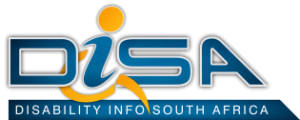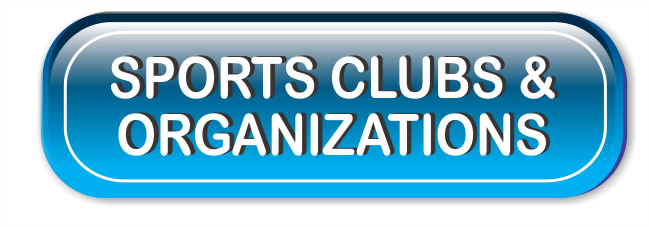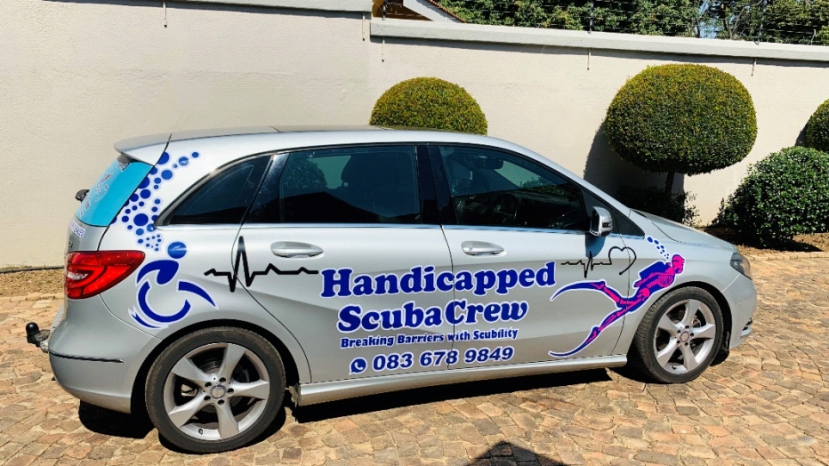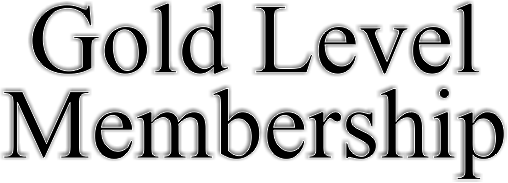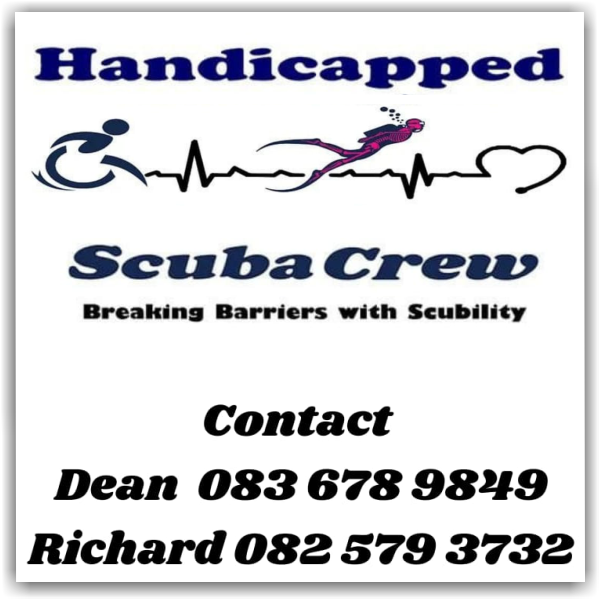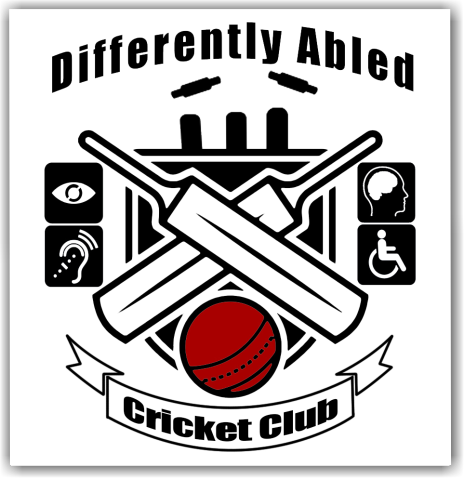Sport for Hearing Impaired
To view the sports organizations & clubs available, click the button to the right.
Contents: To jump to the topic you would like, click on the links below
Introduction
The Deaf or persons with Hearing Impairments can take part in most sports. Sports in the deaf community serves two purposes. First, it allows for athletic competition and second, it promotes social interaction. Sports has a long history in the deaf community. In general, the Deaf do not compete in the Olympics and Paralympics, there is no category for deaf athletes. The Deaf have their own Olympics called Deaflympics which was previously called the World Games for the Deaf, and International Games for the Deaf These are an International Olympic Committee (IOC)-sanctioned event at which deaf athletes compete at an elite level.
In the world of international sports, there are the Olympic Games and competitions for disabled athletes, such as the Paralympic Games, World Games for the Deaf, and the Special Olympics. The Olympic Games, by its very nature, is not accessible to most athletes with disabilities but there are exceptions, including Natalie du Toit: Single Amputee: SwimminOscar Pistorius: Double Amputee: Running and Terrance Parkin: Deaf: Who exhaled in both swimming & cycling, & won a silver in swimming in the Olympic Games.
There are no Paralympic category for athletes who are only Deaf, the formation of special competitions for athletes, who have physically or mentally disabilities, or who are Deaf, has been of tremendous benefit to athletes who have never been given the opportunity to strive to reach the pinnacle of competition.
There is a common misconception among the non-deaf community that deafness is simply another form of disability; that it is a minority subgroup among the greater disabled community. This misconception has led to the question: Why do not all disabled athletes, including the Deaf, compete together in just one Games? One reason for this is that the Paralympics would not be able to absorb such a large number. Some athletes in other disabilities would need to be cut back to allow for a limited number of Deaf athletes to participate.
The International Committee of Sports for the Deaf (ICSD) & Deaflympics
The International Committee of Sports for the Deaf (ICSD) is the main governing body responsible for the organization of Deaflympics and other World Deaf Championships. It was founded in 1924 and is now approaching the century mark of being the organization behind the building, evolving and fortifying the tradition of inviting deaf/hard of hearing elite athletes from all of the world to come together not only to compete in their respective sports, but to also develop comradeships between their countries.
The Deaflympics (previously called World Games for the Deaf, and International Games for the Deaf) are an International Olympic Committee (IOC)-sanctioned event at which deaf athletes compete at an elite level. The games have been organized by the Comité International des Sports des Sourds (CISS, "The International Committee of Sports for the Deaf") since the first event.
To qualify for the games, athletes must have a hearing loss of at least 55 db in their "better ear". Hearing aids, cochlear implants and the like are not allowed to be used in competition, to place all athletes on the same level. Other examples of ways the games vary from hearing competitions are the manner in which they are officiated. To address the issue of Deaflympians not being able to be guided by sounds, certain sports use alternative methods of commencing the game. For example, the football referees wave a flag instead of blowing a whistle; on the track, races are started by using a light, instead of a starter pistol. It is also customary for spectators not to cheer or clap, but rather to wave – usually with both hands.
The South African Sports Confederation and Olympic Commitee (SASCOC)
The South African Sports Confederation and Olympic Committee (SASCOC) is the National Olympic Committee (NOC) and National Paralympic Committee (NPC) for South Africa, and are the responsible body for South Africa at the CommonwealthGames. SASCOC is also responsible for high-performance sport in the country and coordinates the relationship with various international sports federations. They not only help look after all our various National Federations who are affiliated to them, but are responsible for awarding National Protea Colours to athletes who have met the criteria to represent South Africa in different sporting codes, including: Athletics, Swimming /Aquatics, Waterpolo, Archery, Badminton, Baseball, Basketball, Boxing, Canoeing, Cycling, Equestrian, Fencing, Football, Gymnastics, Handball, Hockey, Judo, Karate, Modern Pentathlon, Netball, Rowing, Rugby 7s, Sailing, Shooting, Table Tennis, Taekwondo, Tennis, Triathlon, Volleyball, Weightlifting and Wrestling. Not all of these sports are however available for The Deaf or persons with Hearing Impairments.
South African Deaf Sports Federation
SADSF has participated in all the Deaflympic Games since 1993 and these games have become very popular amongst athletes in South Africa, with each and every athlete aspiring to be part Team South Africa. These aspirations alone are enough to push athletes to work hard at school, local, provincial and national competitions so as to be considered for selection.
The Deaflympics are held every four years, and are the longest running multi-sport event excluding the Olympics themselves. The first games, held in Paris in 1924, were also the first ever international sporting event for athletes with a disability. The SADSF currently promotes 10 sport codes, namely: Athletics; Cricket; Soccer; Netball; Volleyball; Golf; Table Tennis; Swimming; Squash; Cycling.
Most of these codes have their own structures and constitutions and are, as provided for in the SADSF Constitution, affiliated to the SADSF which is a National controlling body that facilitates the administration and coordination of each of these 10 Sport Codes to the highest level of excellence.
SADSF further has 9 constituted Provincial structures that are responsible for the identification and development of sporting talent for Deaf at grassroots level and also for the administering and coordination of sport for the Deaf at a Provincial level.
Deaf School Sport Commission, hereinafter referred to as the Commission, is a permanent Standing Committee of SADSF and its responsibility is to administer and coordinate sport for the Deaf at school level. It directly maintains working relationship with SASCOC School Sport Commission, National Coordinating Council (NACOC) - a Sub Directorate of Sport and Recreation South Africa (SRSA) and Department of Education (DoE) in terms of implementation of school sport projects and policies. The Commission advices SADSF on matters affecting Deaf school sport and oversee the organizing of National Deaf School Games and Championships for Deaf athletes up to 19 years of age.
SADSF Constitution includes some basic objectives such as the provision of training, campaigning for better facilities and the organizing of sporting events. In the years that SADSF have existed, it has won respect and acclaim for the dedicated role it has played in the field of Deaf sport development in the country.
SADSF is affiliated to International Committee of Sports for the Deaf (ICSD) or CISS as it is widely known around the world. SADSF was also affiliated to National Paralympics Committee of South Africa (NAPCOSA) which has now disbanded to pave the way for Disability Sport South Africa (DISSA) which has also been dissolved. As a result of the resolution of Sport and Recreation South Africa (SRSA) Ministerial Task Team, the new body, namely; South African Sports Confederation and Olympic Committee (SASCOC) was established and SADSF became an affiliated member of this body in 2005.
To contribute to the pride of Deaf athletes and to unite Deaf people from diverse cultures in South Africa, the medium of sport and sport participation remain one of the major tools and challenges of SADSF.
South African Deaf Games
South African Deaf Games take place biannually, depending on the availability of funds. Participation is open to all age groupings. The proviso is, however, that to qualify for participation, individuals or teams first need to have proven their qualifying status by prior achievements at formal provincial championships. Likewise, South African School Games for the Deaf also takes place biannually depending on availability of funds.
Provincial Sports Associations
There are various provincial Deaf cricket teams such as:
The Gauteng Deaf Cricket: which was founded in 1975 with the aim of becoming the flagship provincial Deaf Team of South Africa They also one of the oldest Provincial teams in Deaf Cricket in South Africa and is actively involved in grass roots development and is currently working on setting up a Deaf KFC Mini Cricket Contest in conjunction with various stakeholders and Deaf Schools around Gauteng.
Sports Clubs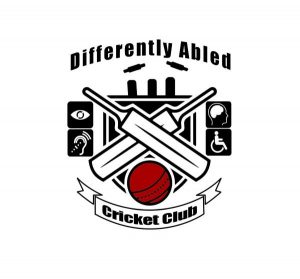
Sports Clubs are also available, which offer either a single or a variety of sports in a particular province or city in South Africa, these clubs may include "Disabled" and Abled Body athletes or just "Disabled" athletes. There are a variety of these clubs in South Africa, including:
The Differently Abled Cricket Club: which is an open cricket club for the differently abled cricket players, which includes the Blind, Deaf, Intellectually Impaired (SID and MID) and Physically Disabled. We are the only club of this kind in South Africa and we would like to make it our goal in getting other regions to follow suit!
In South Africa organisations such as the Handicapped Scuba Crew promote and offer Scuba 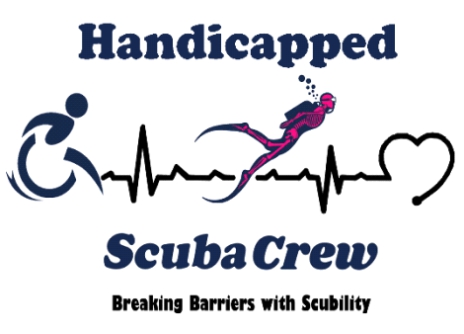 Diving for persons with disabilities, as both an activity and a form of therapy, thus improving the lives of many persons with disabilities throughout South Africa and promoting Scuba Diving for persons with disabilities.
Diving for persons with disabilities, as both an activity and a form of therapy, thus improving the lives of many persons with disabilities throughout South Africa and promoting Scuba Diving for persons with disabilities.
Handicapped Scuba Crew: Handicapped Scuba Crew is a Nonprofit Organization (Registration No: NPO 240/281) which is based in Pretoria and has a mission to break down barriers with “Scubility” – “We Use SCUBA as a tool for rehabilitation back into normal society and to make sure that persons with disabilities are given the same opportunities to receive excellent quality training, certification and dive adventures, as able-bodied divers do. We enhance the lives of all persons with disabilities and their families through the sport of SCUBA Diving. - We raise funds for all of these activities.”
In 2019 the Handicapped Scuba Crew completed more than 400 Sea Dives (Veneus include: Sodwana Bay; Aliwal Shoal; Ponta do Ouro Mozambique and the Red Sea); more than 1000 Pool Sessions and more than 40 x courses.
Handicapped Scuba Crew have worked with persons with various disabilities/conditions, including persons with mobility impairments or conditions. Persons who have dived with us include Persons with Spinal Cord Injuries - paraplegics and quadriplegics; Persons with Cerebral Palsy and Multiple Sclerosis; Amputees and persons with Spina Bifida; Hemiplegics and Persons with Muscular Dystrophy; Persons who have had a Stroke and Persons with Cancer; persons who are Deaf; Autistic; Blind, or have Down Syndrome; PTSD and TBI.
Adaptive techniques enable our organization to live our ethos of everyone is equal, giving people as above an equal opportunity to experience all parts of the dives, including sitting on the pontoon if viable! The benefits of Scuba Diving are vast and include both mental and physical benefits. New medical studies confirm the therapeutic benefits of Scuba Diving and the Handicapped Scuba Crew have been recognised for the work that they are doing and the benefits of Scuba Diving for persons with disabilities.
If you are interested in Scuba Diving, or would like to find out more about the Handicapped Scuba Crew or various events planned, please feel free to contact: Dean on: 083 6789 849 or via email: dean@scubacrew.co.za; Richard on: 082 579 3732 or via email: info@scubacrew.co.za or Sue on: 064 545 1671 or via email: sue@scubacrew.co.za.
You can also visit the Handicapped Scuba Crew: Facebook Page or click on the Link below to find out more about Scuba Diving for persons with disabilities and the Handicapped Scuba Crew.
Types of Sport
A Deaf athlete is able to compete without significant restrictions, with the exception of communication barriers. In team sports and some individual events, hearing loss can be limiting, however, these restrictions disappear in the Deaf Games. The sports and their rules are identical to those of able-bodied athletes. There are no special sports, and the only adaptations are to make auditory cues visible, such as the use of strobe lights for starting signals. Among the athletes allowed to compete in the Deaf Games, there are no classifications or restrictions except for the requirement that each have a hearing loss of at least 55 decibels in the better ear. Persons who are Deaf or have Hearing Impairments can therefor take part and benefit from most Sports, Hobbies and other physical activities. These activities are a good way to increase the social skills, gain physical agility as well as confidence, and understand social situations. Below are just a few Sports available, to view more information about these Sports and others, view the menu on the left, or visit the links below:
Athletics & Swimming
Due to the fact that there is no category for the Deaf in the Paralympics, some deaf athletes have been known to compete in the Olympic Games in both Athletics & Swimming. Terrance Parkin who competed in both swimming & cycling, & won a silver in swimming in the Olympic Games for South Africa.
Both Athletics & Swimming in South African is governed by SASCOC " South Africa’s Sports Confederation and Olympic Committee." They not only help look after all our various National Federations who are affiliated to them, but are responsible for the awarding for National Protea Colours to athletes who have met the criteria to represent South Africa in these different sporting codes, however these sports are available to all who wish to participate.
Deaf Cricket & Football
Cricket and Soccer, also known as Football, is available for The Deaf and persons with Hearing Impairments in South Africa at national, provincial and club level. Hearing disabilities are no obstacle to playing Cricket or Soccer but there is a minor difference between the so-called main-stream Cricket or Soccer, such as the level of noise during the deaf sports event and the main-stream match, which is huge. The number of decibels is also a main factor, the players involved in these teams should be able to encode up to 55 decibels of sound.
Deaf Rugby
Deaf rugby players have been playing since the game first started to be played. A South African deaf rugby team first competed internationally back in 1995, when they toured New Zealand and beat the hosts 2-1 in a three-match series.
The South African Deaf Rugby Union (SADRU). Just like their able-bodied counterparts, the Springboks are aiming to be the best in the world.
Tournaments include The Deaf Rugby World Cup & The World Deaf rugby Championship, as well as hosting and taking part in international tours to England, Wales, New Zealand, etc.
Golf & Bowls
Both Deaf Golf & Bowls are available to all individuals Hearing Impairments in South Africa. Hearing disabilities are no obstacle to playing Golf & Bowls. There is a minor difference is the level of noise during the deaf sports and the main-stream game is huge. The number of decibels is also a main factor. The players involved in these teams should be able to encode up to 55 decibels of sound. Both sports are played at social, club & Provincial level, as well as at International level.
Paragliding
Paragliding is the recreational and competitive adventure sport of flying paragliders. The pilot sits in a harness suspended below a fabric wing comprising a large number of interconnected baffled cells. Wing shape is maintained by the suspension lines, the pressure of air entering vents in the front of the wing, and the aerodynamic forces of the air flowing over the outside.
Despite not using an engine, a paragliders flight can last many hours and cover many hundreds of kilometers, though flights of one to two hours and covering some tens of kilometers are more the norm. By skillful exploitation of sources of lift, the pilot may gain height, often climbing to altitudes of a few thousand meters. Paragliding takes allot of skill and hours of practice, but this does not mean that you can't enjoy the thrill of paragliding even if you have a disability.
Scuba Diving
Scuba Diving is a very popular recreational activity for both able bodied persons and persons with disabilities across the world, not to mention in our beautiful waters and climate of South Africa. Scuba Diving provides a wide variety of benefits for persons with impairments and is enjoyed by persons with disabilities/impairments, including persons with Hearing impairments or those who are Deaf. Having a Hearing Impairment does not affect your ability to Scuba Dive but instructions may need to be given in a different way to ensure that the instructor is understood by everyone. Thanks to organisations in South Africa such as Handicapped Scuba Crew, who are willing and able to make these adaptions to accommodate everyone, Scuba Diving can be enjoyed by more people in South Africa and around the world. The Handicapped Scuba Association promotes Scuba Diving in other countries around the world, each year they plan Scuba Diving trips to exotic locations led by specially trained Scuba Divers and, ensuring that you have a safe and comfortable Scuba Diving experience. Please click on the link below to find out more about Scuba Diving and the organisations that can assist you and how they can benefit you through these activities and other services that they provide, or read the page below to find out more about other sports and activities in South Africa.
Tennis & Table Tennis
Tennis & Table Tennis are both played at social, club & Provincial level, as well as at International level. Both sports are competed in at the Deaflympics Games. The players however should be able to encode up to 55 decibels of sound to compete here. Hearing disabilities are no obstacle to playing these sports. There is a minor difference between this version and the so-called main-stream version, but both these sports the rules remain the same. The level of noise during the deaf sports and the main-stream match is huge.
Please send us information on any other sport.
Disclaimer
If you would like to find out more about these & other Sports Clubs, Organizations or Sports that are available for you, you can visit our Sports Search Facility: http://disabilityinfosa.co.za/search-for-info/sports-clubs-organizations/
Please note that the FREE services and website that we offer is privately run & funded and is not run or funded by the Government or any Organization. We therefore rely on advertising and donations to continue to supply and improve this Free service. The Companies, Clubs, Schools and Organizations that have their logos on this site, have advertised or made donations to the Website and have therefore assisted us be able to continue to offer this free Service. Please support them as they have supported Us and please contact us if you can advertise with us or would like to make a donation!
N.B: This Website is continually changing and being improved some sections may therefor be incomplete or have links and contact details that are outdated. We are making every effort to keep this to a minimum, so we ask for your patients in this regard and to please Contact Us if you notice that your Companies, Clubs, Schools or Organizations details are incorrect or have changed.
Thank you for visiting our website, we hope that it will be helpful, please feel free to visit our Facebook Page to leave a comment.
